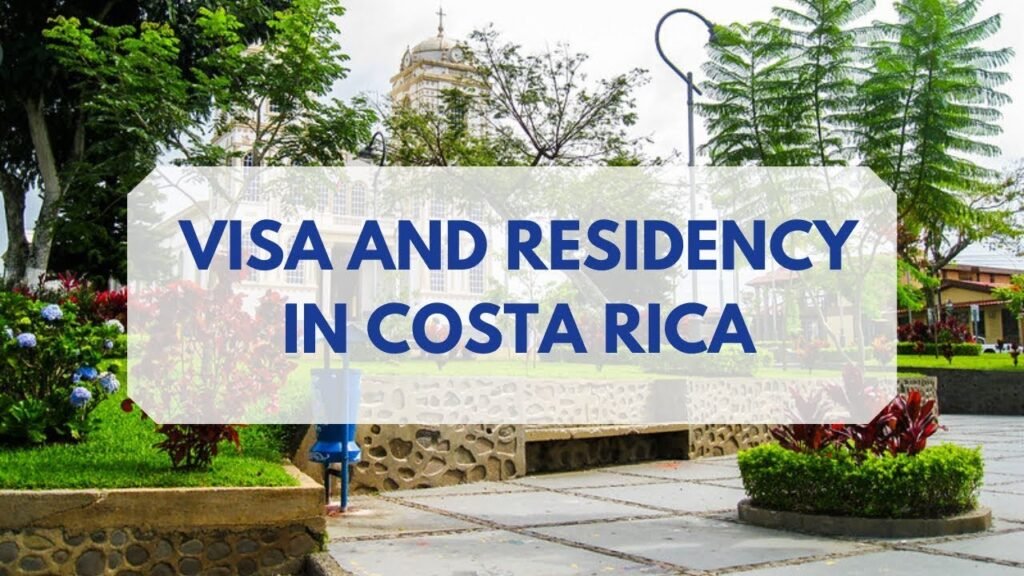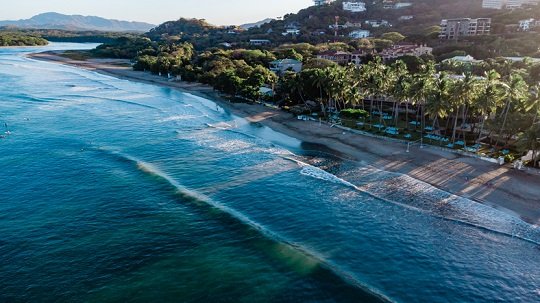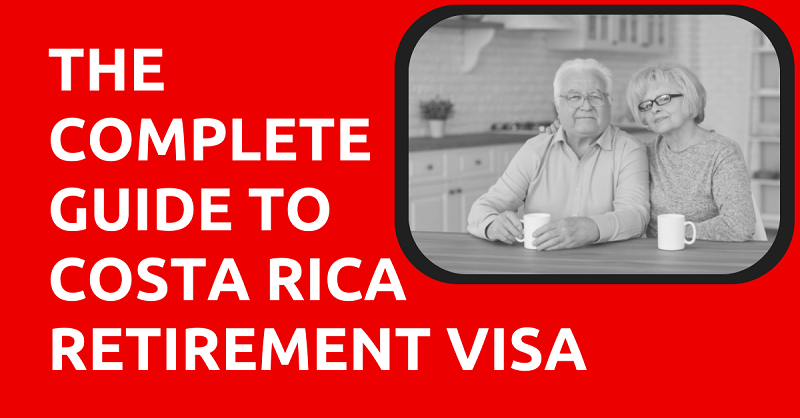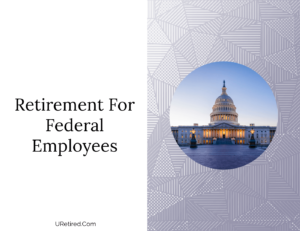Curious about calling the lush paradise of Costa Rica your new home? This guide will walk you through the essentials of obtaining residency or a retirement visa in Costa Rica. You’ll get clear, step-by-step information on the types of visas available, the application process, and the necessary documentation. Whether you’re dreaming of a life of adventure amidst vibrant rainforests or a serene retirement on pristine beaches, this guide will help you make your vision a reality. Let’s dive into the exciting journey of establishing your new life in Costa Rica!
How Do I Obtain Residency Or A Retirement Visa In Costa Rica?
Are you dreaming of the lush landscapes, vibrant culture, and laid-back lifestyle of Costa Rica? It’s easy to see why this Central American gem is a popular destination for those seeking residency or a retirement visa. But how do you make that dream a reality? Let’s dive into the nitty-gritty of obtaining residency or a retirement visa in Costa Rica and explore the process step-by-step.

This image is property of i.ytimg.com.
Check out our recommended retirement gifts!
Understanding Residency Options
Before you leap into the application process, it’s essential to understand the different types of residencies available in Costa Rica, as each comes with its own set of requirements and benefits.
Temporary Residency
Temporary residency allows you to stay in Costa Rica for a limited period, typically one to two years. This can be renewed, and after a certain period, you can convert it to permanent residency. Temporary residency is ideal for retirees, investors, and individuals with family members who are Costa Rican citizens or residents.
Permanent Residency
Permanent residency is the ultimate goal for many, as it grants more rights and fewer restrictions compared to temporary residency. After holding temporary residency for at least three years, you can apply for permanent residency. Permanent residency allows you to work legally and stay indefinitely without the need for renewal.
Special Categories
Costa Rica also offers special residencies for specific categories, such as:
- Pensionados (Retirees)
- Rentistas (Individuals with steady income)
- Investors
- Students
Each special category has its own specific requirements and benefits, detailed below.
Requirements for Pensionado Residency
If you’re a retiree, the Pensionado Category might be the perfect fit for you. It’s designed for individuals receiving a pension or guaranteed lifelong income.
Minimum Income Requirement
To qualify as a Pensionado, you need a stable, lifetime pension of at least $1,000 USD per month. This can be from Social Security, a private pension plan, or other guaranteed income sources.
Required Documents
Here are some common documents you will need:
- Proof of Pension: A letter from the pension organization confirming your monthly income.
- Birth Certificate: You will need a copy of your birth certificate, apostilled or authenticated.
- Police Clearance: Police certificate from your home country, showing no criminal records.
- Passport: Copy of your passport, showing all the pertinent details.
- Application Form: Fill out the Pensión de Estado application form thoroughly.
- Photos: Passport-sized photos.
Application Process
- Gather Documents: Collect and authenticate the necessary documents.
- Submit Application: Submit your application to the Dirección General de Migración y Extranjería (DGME).
- Pay Fees: Pay the applicable fees for the application process.
- Wait for Approval: Wait for the application to be processed, which can take several months.
- Obtain Residency Card: Once approved, you’ll receive your residency card.
Check out our recommended retirement gifts!
Requirements for Rentista Residency
Not quite retired but have a steady income? The Rentista Category is perfect for you. This option is designed for individuals with regular, reliable income from investments or other non-employment sources.
Minimum Income Requirement
You must demonstrate a steady monthly income of at least $2,500 USD for a minimum of two years or a lump sum deposit of $60,000 USD in a Costa Rican bank.
Required Documents
Documents needed will include:
- Proof of Income: Bank statements or other documentation proving the source of your income.
- Bank Letter: If depositing the lump sum, a bank letter confirming the deposit.
- Birth Certificate: Apostilled or authenticated birth certificate.
- Police Clearance: Police certificate from your home country.
- Passport: Copy of your passport.
- Application Form: Complete the required application form.
- Photos: Passport-sized photos.
Application Process
- Prepare Documents: Gather and authenticate the required documents.
- Submit Application: Submit your application to DGME.
- Pay Fees: Pay the necessary fees.
- Application Review: The review process can take several months.
- Receive Residency Card: Once approved, you’ll get your residency card.
Requirements for Investor Residency
If you’re looking to invest in Costa Rica, the Investor Category could be your ticket. This is suitable for those investing substantial amounts in the country, creating jobs, or buying property.
Minimum Investment Requirement
You need to make an investment of at least $200,000 USD in real estate, business, or government-approved projects.
Required Documents
Here’s what you’ll need:
- Proof of Investment: Documentation showing the amount invested.
- Business Plan: If applicable, a business plan detailing your investment.
- Birth Certificate: Apostilled or authenticated copy.
- Police Clearance: Criminal background check from your home country.
- Passport: Passport copies.
- Application Form: Complete the necessary application form.
- Photos: Provide passport-sized photos.
Application Process
- Compile Documents: Ensure all documents are authenticated.
- Apply: Submit the complete application to DGME.
- Fees: Pay the associated application fees.
- Processing: The review period may take several months.
- Residency Card: Upon approval, you will receive your residency card.
This image is property of www.costarica.com.
Requirements for Student Residency
Students looking to study in Costa Rica can apply for Student Residency. This is ideal for both short-term exchange students and those pursuing long-term studies.
Enrollment Requirement
You’ll need to be enrolled in a recognized educational institution in Costa Rica.
Required Documents
Key documents include:
- Proof of Enrollment: Official letter from the educational institution.
- Birth Certificate: Authenticated or apostilled copy.
- Police Clearance: Background check from your home country.
- Passport: Copies of your passport.
- Application Form: Fill out the application for a student visa.
- Photos: Passport-sized photos.
Application Process
- Document Preparation: Collect and authenticate needed documents.
- Submit Application: Send your application to DGME.
- Payment: Pay the application fees.
- Application Review: Processing times may vary.
- Residency Card: Once approved, you’ll get your residency card.
Cost Breakdown of Different Visa Categories
It’s beneficial to have a clear idea of the potential costs associated with each visa category. Here’s a breakdown to help you budget accordingly.
| Residency Type | Application Fee | Legal Fees (Approx.) | Other Costs |
|---|---|---|---|
| Pensionado | $250 | $1,000 – $1,500 | Documentation, translation, etc. |
| Rentista | $250 | $1,000 – $1,500 | Bank deposit fees, documentation |
| Investor | $200 – $300 | $1,500 – $3,000 | Investment costs, documentation |
| Student | $100 | $500 – $1,000 | Enrollment fees, documentation |
Note:
- Legal fees can vary based on the attorney’s fees and complexity of the case.
- Other costs include translations, apostilles, notary services, and any special documentations required.

This image is property of www.visasupply.com.
Important Considerations
There are a few key points to keep in mind when applying for residency or a retirement visa:
Language Barrier
Most official processes are conducted in Spanish. It’s highly advisable to either learn basic Spanish or hire a local professional to help you navigate the process.
Health Insurance Requirement
Costa Rica requires all residents to enroll in the Caja Costarricense de Seguro Social (CCSS) or obtain private health insurance. Be prepared to show proof of enrollment.
Patience and Preparation
The Costa Rican residency process can be time-consuming. Gathering proper paperwork and adhering to specific requirements are crucial. Patience and thorough preparation will ensure smoother sailing.
Legal Assistance
While not mandatory, hiring a local lawyer specializing in immigration can greatly simplify the process. They can offer invaluable advice and help you navigate the complexities of residency applications.
Tips for a Successful Application
Here are some handy tips to help you on your journey to obtaining residency in Costa Rica.
Start Early
Begin gathering documents and preparing your application well in advance. Some paperwork can take weeks, if not months, to acquire and authenticate.
Keep Originals and Copies
Always have multiple copies of your documents, and keep the originals in a safe place. Submit only notarized copies unless originals are explicitly required.
Stay Organized
Use folders or digital tools to keep all your paperwork organized. Ensure you know where each document is and what stage of the application they are for.
Regular Follow-ups
Don’t hesitate to follow up on your application’s status with the immigration office. Regular check-ins can help you stay informed and address any potential issues promptly.
Networking
Connect with expat communities in Costa Rica. They can provide firsthand advice, share experiences, and recommend reliable attorneys or service providers.

This image is property of www.expatden.com.
Final Thoughts
Obtaining residency or a retirement visa in Costa Rica can open the door to an exciting and vibrant new chapter in your life. With stunning landscapes, a friendly community, and a relaxed pace of life, it’s no wonder that many choose to make Costa Rica their new home. By understanding the types of residencies available, gathering your documentation meticulously, and possibly seeking legal advice, you can navigate the process with confidence.
So, are you ready to start your adventure in this beautiful country? With a bit of preparation and patience, your dream of living in Costa Rica can become a reality!




